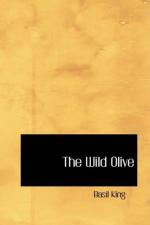“I am bound to him,” she said, in a tone in which there were all the regrets he had no reason to divine. “I don’t know what you think of saying; but whatever it is, I implore you not to say it.”
“It’s precisely because you don’t know that I feel the necessity of telling you. It’s something I owe you. It’s like a debt. It isn’t as if we were just any man and any woman. We’re a man and a woman in a very special relation to each other. No matter what happens, nothing can change that. And it isn’t as if we were going to live in the same world, in the same way. You will be Conquest’s wife—a great lady in New York. I shall be—well, Heaven only knows what I shall be, but nothing that’s likely to cross your path again. All the same, it won’t hurt you, it wouldn’t hurt any woman, however good, to hear what I’m going to tell you. It wouldn’t hurt any man—not even Conquest—that it should be said to his wife—in the way that I shall say it. If it could, I wouldn’t——”
“Wait a minute,” she said, suddenly. “Let me ask you something.” She took a step toward him, though her hand rested still on the back of the chair. “If I know it already,” she continued, looking him in the eyes, “there would be no necessity for you to speak?”
He took the time to consider this in all its bearings.
“I’d rather tell you in my own words,” he said, at last; “but if you assure me that you know, I shall be satisfied.”
She took a step nearer to him still. Only the tips of her fingers now rested on the back of the chair, to which she held, as to a bulwark. Before she spoke she glanced round the room, as though afraid lest the doors and walls might mistake her words for a confession.
“Then I do know,” she said, quietly.
XXIII
“The old lady was willing enough to talk,” Conquest assured Ford, in his narrative of the taking of Amalia Gramm’s testimony. “There’s nothing more loquacious than remorse. I figured on that before going out to Omaha.”
“But if she had no hand in the crime, I don’t see where the remorse comes in.”
“It comes in vicariously. She feels it for Jacob, since Jacob didn’t live to feel it for himself. It involves a subtle element of wifely devotion which I guess you’re too young, or too inexperienced, to understand. She was glad old Jacob was gone, so that she could make his confession with impunity. She was willing to make any atonement within her power, since it was too late to call him to account.”
“Isn’t that a bit far-fetched?”
“Possibly—except to a priest, or a lawyer, or a woman herself. It isn’t often that a woman’s heroism works in a straight line, like a soldier’s, or a fireman’s. It generally pops at you round some queer corner, where it takes you by surprise. Before leaving Omaha I’d come to see that Amalia Gramm was by no means the least valiant of her sex.”




